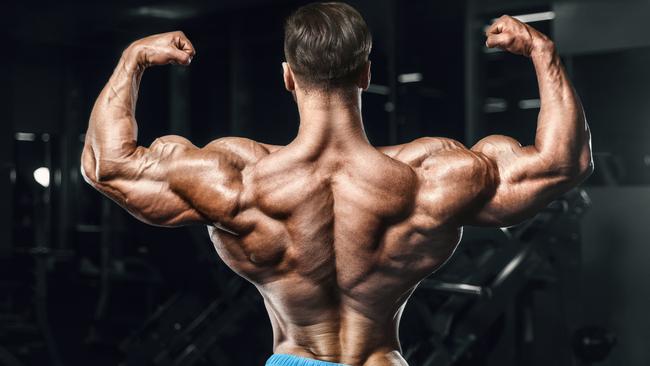More boys and young men are suffering from ‘bigorexia’ – is social media to blame?
It’s great if your teenage son wants to get fit, healthy and strong, but how do you know if he’s taking it too far? We spoke to an expert about the concerning power of “jacked” influencers.

Lifestyle
Don't miss out on the headlines from Lifestyle. Followed categories will be added to My News.
Bulked-up influencers and “jacked” TikTok stars who promote extreme exercise regimes and diets are fuelling a worrying increase in the number of boys and young men with body image issues and disordered eating, experts warn.
They say the use of steroids, supplements and muscle-building products are also on the rise while “younger and younger” boys are trying potentially dangerous “challenges” in a bid to look like those on their screens.
There are growing reports, too, of more young men seeking to have chest, pec and ab implants.
With an estimated one in five boys now experiencing disordered eating globally, body image expert Veya Seekis says there’s emerging international research showing muscle dysmorphia, often described as “reverse anorexia” or “bigorexia”, in which people become fixated with building muscle, is on the rise.
“It is often not the thin boy who wants to become a well-developed boy, it’s those who already have well-developed bodies but for some reason don’t think they are big enough,” the Griffith University lecturer, who is currently working with Adelaide body positivity advocate and Australian of the Year Taryn Brumfitt on new school-based resources, said.
“TikTok has really pushed the envelope … rather than just looking at static images, boys are watching engaging videos where they can see someone workout or talk about the supplements they are using, or the diets they are doing.”

She said “fitspiration” challenges popular on TikTok which promised dramatic results in a short time were also problematic.
Examples include the restrictive “carnivore diet” that allows only meat, fish and other animal products such as eggs and dairy products with no carbohydrates, fruits or vegetables, as well as the “300 crunches everyday for 30 days challenge”.
“Unfortunately, you’re getting advice from TikTokers or creators who really don’t have any idea about diet, about physiology, about adolescents’ development and that is where a lot of the problems lie … some of those challenges can be dangerous, healthwise,” Dr Seekis said.
Adelaide’s Murray Drummond, director of Flinders University’s SHAPE (sport, health, physical activity and exercise) Research Centre agreed.
“Young people are getting a lot of their weight training programs from these so-called experts on TikTok,” Dr Drummond said.
“It could be good but it might not be good, we don’t know if it’s been vetted, it is certainly not peer reviewed … people need to understand these massive bodies they are seeing, are three-to-four-hours-a-day workout bodies, it is what these influencers do for their life.”
US-based family advocacy group Parents Together Action is petitioning to have TikTok and Instagram stop pushing out “extreme weight loss and dangerous exercise content” to kids.



